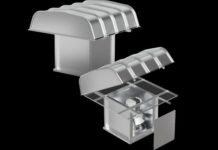For example, let’s say that your insurance company’s initial roof replacement estimate did not include drip edge. However, your roof replacement required drip edge at the time of installation. If your policy has coverage for the required drip edge, the insurance company can add it to their scope of work and pay for it after the work is performed. All that is required is for your roofing expert to adequately prove the drip edge was either pre-existing or required by code, along with images that the work was performed. The process of your roofing expert’s submittal of proof and the insurance company’s subsequent payment represents an insurance “Supplement”.
Some property owners or managers mistake this process as the contractor trying to get “extra,” above what was reasonable from their original contract; but, remember the purpose of a supplement—they’re there to make up for a deficiency. So long as the contractor has adequate proof that the scope of work’s expansion was required, and the work was performed, it is a valid and acceptable practice to supplement the claim.
7. Ensure Your Premiums Reflect A New Roof
Even if the insurance company foots the bill for your new roof, you can get the equivalent of a discount on your premiums. Hard to believe, but it’s true! Here’s the caveat. First, you must notify them of the new roof’s installation. This is seemingly redundant since you may have already notified the insurance carrier of the roof’s completion and supplied receipts for such to get your depreciation released. Ironically, that’s not the notice they require for you to get lower premiums. The issue is that even within same insurance company the claims side of the insurance industry and the sales side operate far apart from one another. To get the benefit in lower premiums from having a new roof you must notify the sales side, which is usually through your agent or directly with the carrier through their sales side.
An important side note: when you contact the insurance carrier, realize that they may not refer to this lower premium as a “discount.” Some carriers openly use this language, and may even advertise it, while others don’t refer to it this way. Instead, they’ll say that a newer roof will affect your premiums. This is a sleight of hand on the insurance company’s part and one that can be a gotcha if you just call in and inquire about their “new roof discount.” Those that do this without understanding this nuance in word usage are often met with being told that there aren’t any “discounts.”
Understanding how insurance claims work is critical to get the money you need quickly to ensure your roof is durable and in good shape. Work with a professional roofing insurance inspector to document any damage and provide you with proof—never rely on just the insurance company.
Conley is the CEO of Complete Roofing in Woodstock, GA. Complete Roofing has provided Greater Atlanta commercial and residential property owners with insurance quote inspections and roofing repairs for over 15 years.



















![[VIDEO] Job Order Contracting: Accelerating the Projects that Matter](https://facilityexecutivemagazine.kinsta.cloud/wp-content/uploads/2024/05/maxresdefault-324x160.jpg)
